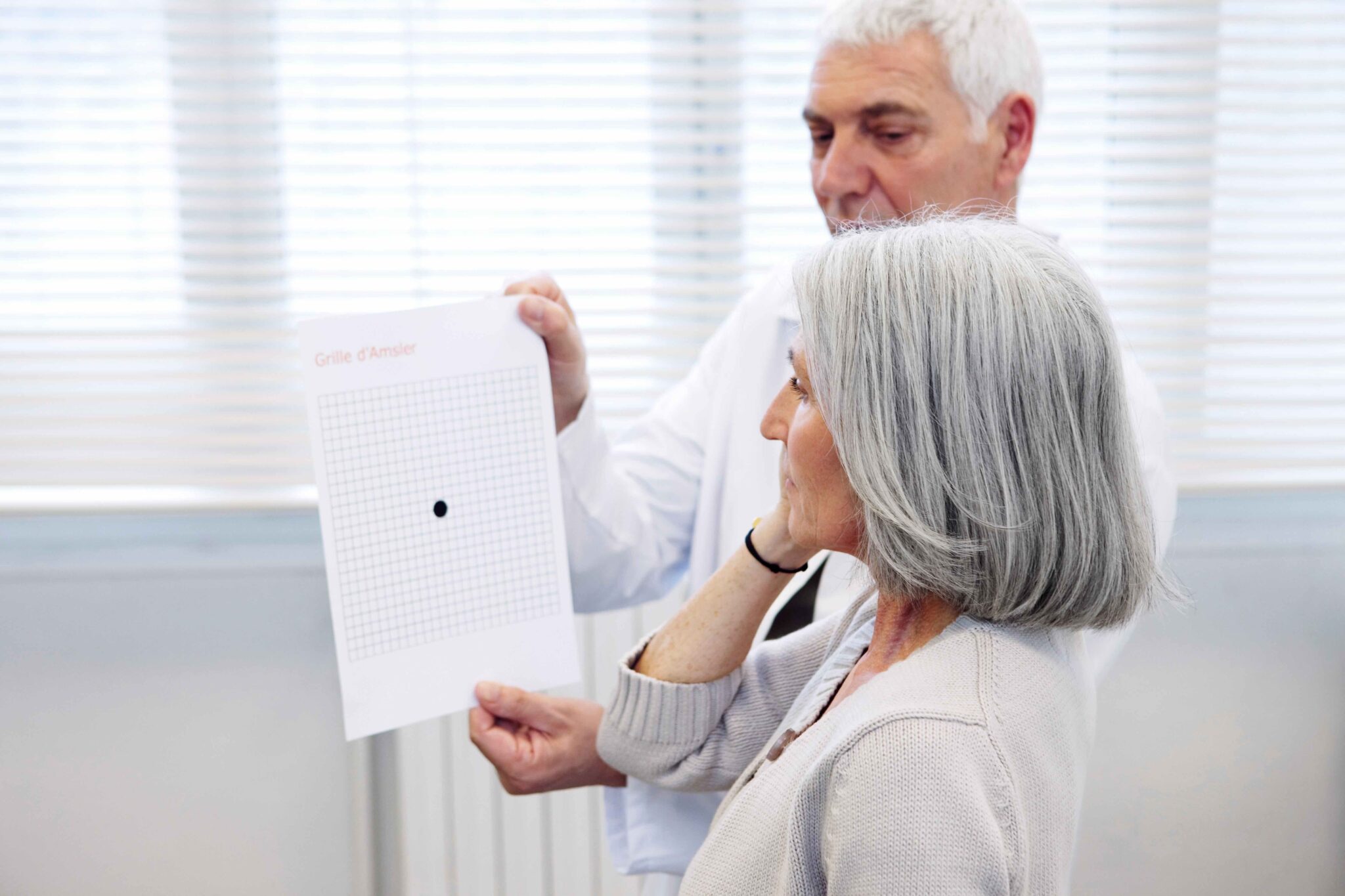February marks Age-Related Macular Degeneration (AMD) Awareness Month, an important time to focus on this leading cause of vision loss among older adults. At Newsom Eye, we are committed to educating our community about AMD, its impact on vision, and the importance of early detection and management to help preserve sight. With AMD affecting more than 10 million Americans, understanding this condition is crucial for prevention and treatment.
What is Age-Related Macular Degeneration?
Age-Related Macular Degeneration is a degenerative eye disease that affects the macula, the part of the retina responsible for clear vision in your direct line of sight. AMD can lead to a loss of central vision, which is vital for activities like reading, driving, recognizing faces, and seeing fine details. The disease does not lead to complete blindness, but the loss of central vision can severely impact daily life.
Types of AMD
AMD comes in two forms:
- Dry AMD: This form is the most common and occurs when the macula gets thinner with age, and tiny clumps of protein called drusen grow. Most people with AMD have the dry form.
- Wet AMD: Though less common, wet AMD is more severe. It happens when new, abnormal blood vessels grow under the retina and leak blood and fluids, causing rapid damage to the macula.
Risk Factors for AMD
Understanding the risk factors associated with AMD can help with prevention and early detection. Key risk factors include:
- Age: The risk of AMD increases significantly after age 60.
- Genetics: Family history of AMD increases the risk of developing the condition.
- Race: Caucasians are more likely to develop AMD than other races.
- Smoking: Smoking doubles the risk of AMD.
Symptoms of AMD
Early AMD often does not have symptoms. As the disease progresses, one may notice:
- Gradual loss of ability to see objects clearly.
- Distorted vision.
- A dark or empty area appearing in the center of vision.
Preventive Measures and Treatment
While there is no cure for AMD, there are steps you can take to reduce your risk and slow its progression:
- Regular Eye Exams: Early detection through comprehensive eye exams can help manage the disease effectively.
- Diet and Supplements: Diet rich in antioxidants and certain supplements can slow progression in people with moderate to severe conditions.
- Quit Smoking: Smoking cessation is crucial for those at risk.
- Protective Eyewear: Sunglasses that block UV rays can reduce cumulative eye damage.
How Newsom Eye Can Help
At Newsom Eye, our team is equipped with advanced diagnostic tools to detect AMD in its earliest stages. We offer personalized treatment plans based on the severity and type of AMD, including nutritional advice, supplements, and therapies like injections for wet AMD.
Join Us in Raising Awareness
During Age-Related Macular Degeneration Awareness Month, we encourage everyone, especially those over 60, to schedule an eye exam. Understanding and addressing AMD early can make a significant difference in maintaining quality of life and independence.
For more information or to schedule an appointment, visit us at our locations in Tampa, Sebring, Carrollwood, South Tampa, Clearwater, Brooksville, and Gainesville, Florida. Together, we can tackle AMD with informed care and proactive measures.




